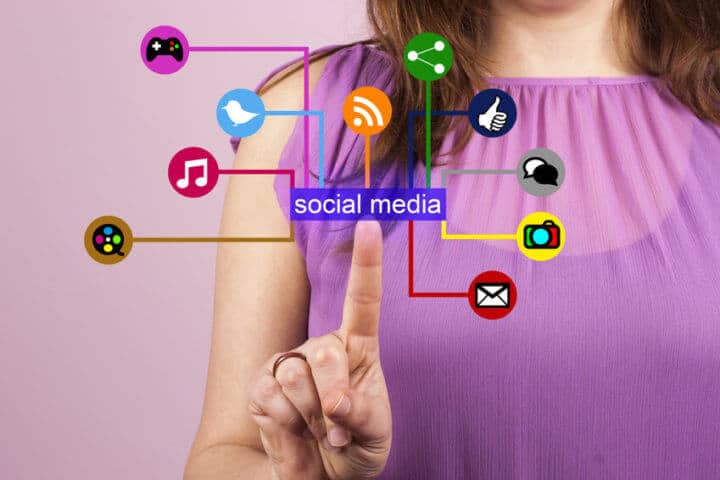Facebook and other social media platforms are sometimes dismissed as ‘anti-social media’ by people who consider that it encourages users to neglect real-world interactions in favor of collecting online friends and likes. But could Facebook actually be detrimental to your physical and mental health? Are you placing too much importance on gaining likes and comments, and becoming downhearted when you don’t get a response to your posts? And if you’re the parent of a teenager, should you be worried about their use of social media?
What should be a useful tool can quickly become a source of anxiety and stress. The problem is twofold.
Firstly, social media can actually have a physical effect on your health. Studies suggest that having a large number of Facebook friends (in excess of 300) increases the cortisol levels in teenagers. Cortisol is the stress hormone produced by the adrenal glands; higher levels have a negative impact on cognitive performance as well as causing physical effects on the body. In reality, it’s not uncommon for teens to have 1,000 or more Facebook friends.
Secondly, there are also issues with mental health. People worry about how their friends see them and feel under pressure to present the ‘right’ image. Celebrity images and peer pressure have always been there, but the prevalence and easy access of social media can therefore have a negative impact on self-esteem and mental health.
It’s not just teenagers who should be cautious about their Facebook use. Even though they’re supposed to be less impressionable, adults can quickly become caught up in online dramas, the fear of missing out, and the presumption that others are enjoying better lives than they are. It is easy to forget that what we see is only a part of the picture, and that we should not become involved in arguments with people whose opinion is irrelevant to our lives.
There are also Facebook accounts set up merely to inflame, harass, or promote extreme views. You have no control over what your friends share (other than to delete or mute them), and it becomes all too easy to be exposed to comments that we find stressful.
Social media can be a useful tool for keeping in touch with groups, relatives in other countries, and for communicating news to a large number of contacts. But when it starts to be a negative influence in your life, you should limit your use or close your accounts altogether.
How can you tell if Facebook is a problem for you? If you’re repeatedly getting into arguments online, checking your account constantly, or being targeted by harassment, then you should be alert. Are you looking for updates during the night, or when you should be carrying out more important tasks? Do you ignore the friends you’re with and stare at your phone instead? Be cautious of allowing social media to encourage narcissistic tendencies; the minutiae of your life is probably not as interesting to others as you might think!
One very useful piece of advice for handling social media sensibly is to always think carefully before posting anything. It’s important to remember that anything you post, even if your account is set to private, could easily be captured or shared. A comment made in anger can still be seen, even if it is quickly deleted, and the written medium can be easily misunderstood owing to the lack of expression and tone. Also try not to take what other people say too seriously; they may exaggerate in order to get attention or boost their ego, or be out to cause a reaction. Responding to them will be giving them exactly what they want.
If you’re finding yourself repeatedly harassed or upset, consider closing your account. You will cope without it; people used to manage perfectly well before! Find other methods of keeping in touch with friends.
You may not even need to go to the lengths of closing your accounts. Exercising discretion in who you allow access may be sufficient to calm the situation. For example, only accept people that you know and trust in real life to be on your friends list. You can unfollow anyone who comes across really negative or simply unfriend them altogether. You should also limit the number of times you access your account; it really isn’t necessary to check it more than once or twice a day. In addition, try to adopt a sense of perspective towards social media. It really doesn’t matter if someone else doesn’t agree with you, or what people think of you. A break may be sufficient to clear your head and show you that social media is not the all-important entity that we have allowed it to become.




Leave a Reply